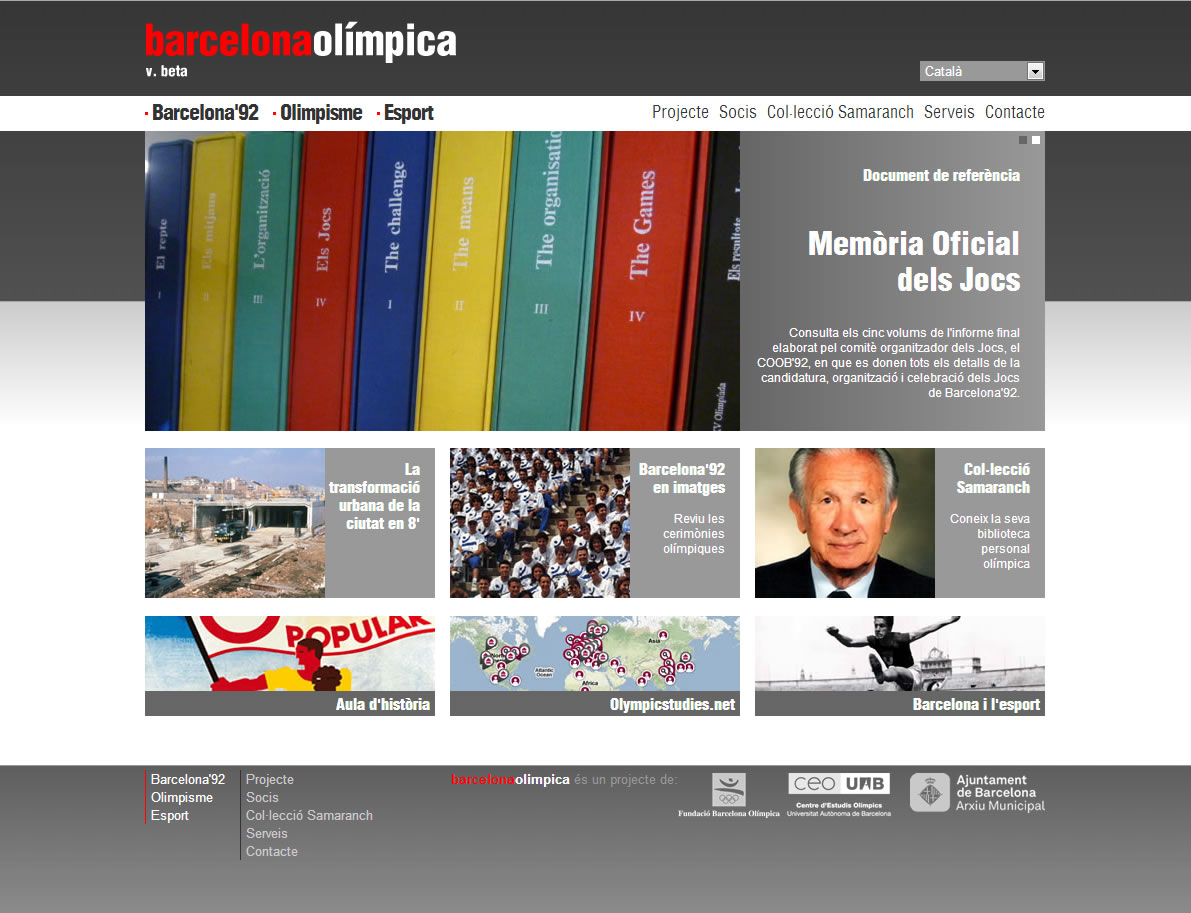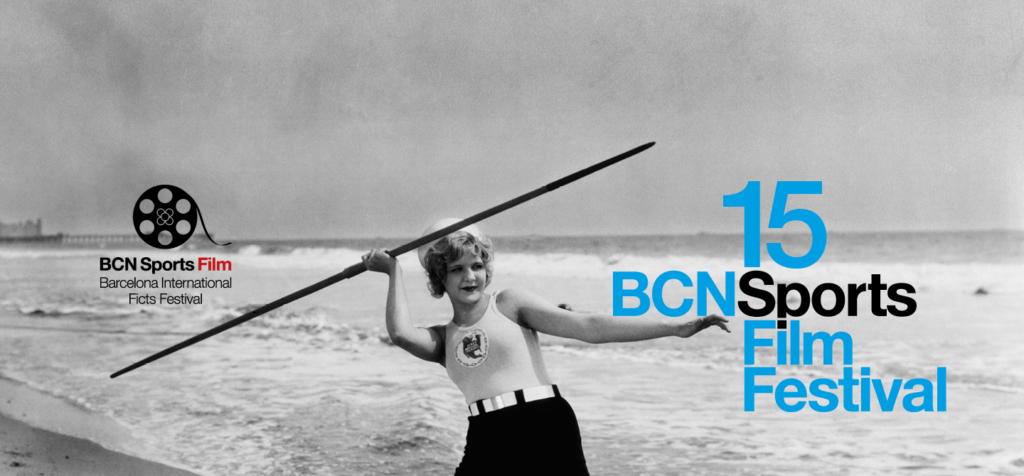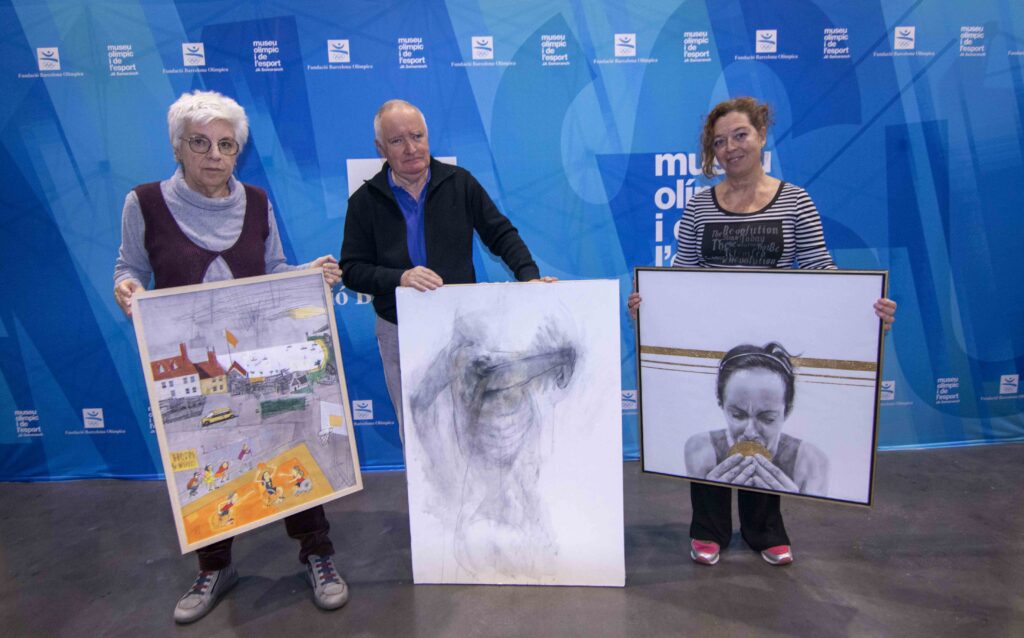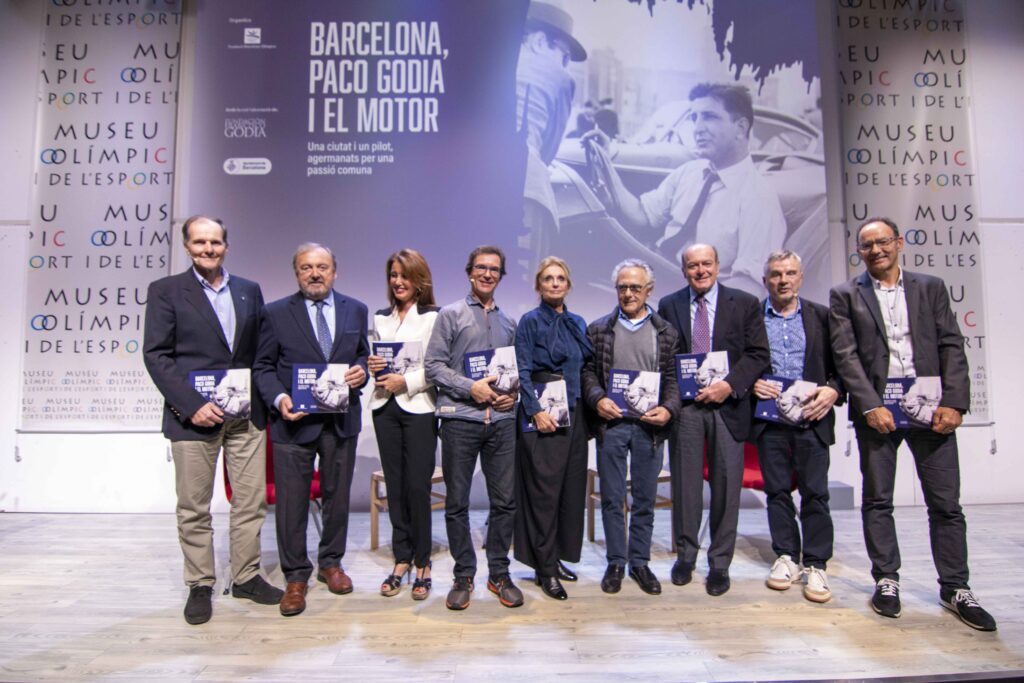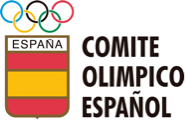Barcelona Olímpica embraces the collections of the partner institutions: the Olympic & Sports Study Center Joan Antoni Samaranch, the Olympic Studies Centre at the UAB, the Municipal Archives of Barcelona (COOB’92, HOLSA and OCSA collections), as well Joan Antoni Samarach’s personal Olympic and sporting library.
For the first time, this initiative provides coordinated services to access to the information on the Barcelona’92 Olympic Games’ collection and is internationally available through a unique platform. More than 11,000 books, 180 journal titles, 6,300 videos, 240,000 photographs, 45 linear metres of press clippings and 6 of academic research, 11,929 boxes of administrative documents and 30,103 maps and plans. A collection that enables users to learn about the Olympic history of our city.
Through the web platform barcelonalimpica.net, users can learn on the bibliographic, audio-visual and archival collections held by each institution on the main aspects of the Olympic and sporting history of the city. Barcelonalimpica.net also provides access to the Olympic digital collection developed by partner institutions that includes research documents, official publications and images on the Games.
Barcelona Olímpica also comprises the Joan Antoni Samaranch collection, a section of the personal library of the IOC President donated to the Barcelona Olympic Foundation to be hold and managed by the CEO Samaranch. This important collection, comprising more than 5,000 titles, is complemented with works on this life and person. The collection constitutes a central and differential element of the project, and is complemented with the Samaranch collection held in the IOC archives.
The wealth of material included in the project and the proposal of coordinated services, will turn it into one of the main centres of Olympic knowledge, and an example on the management of the informational legacy of the Olympics. With this project, Barcelona aims to become a pioneer and wold referent on the management and exploitation of the immaterial legacy of the Olympic Games and the city sport culture.

